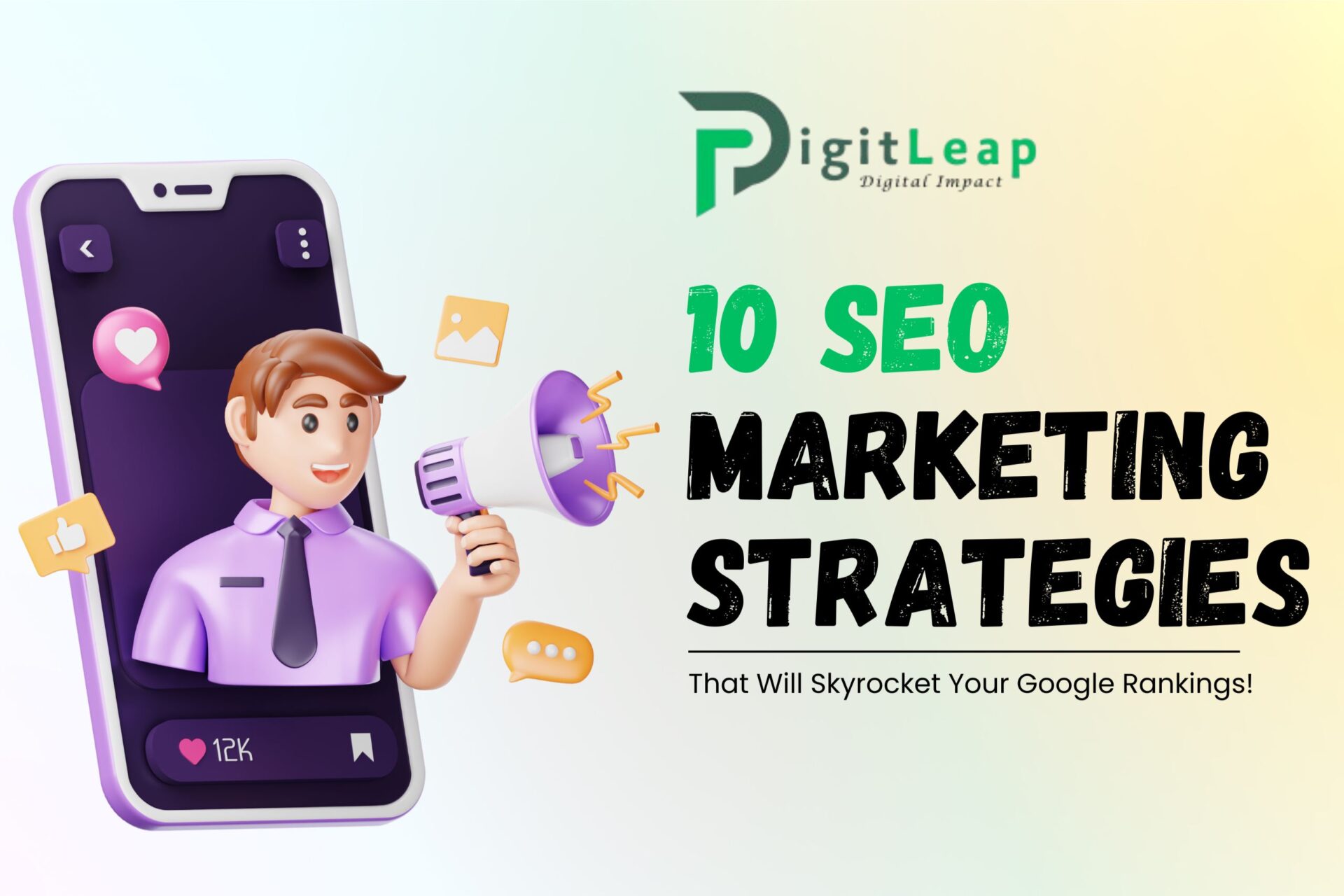10 SEO Marketing Strategies That Will Skyrocket Your Google Rankings!
Introduction
Getting your website to rank high on Google is crucial for attracting more traffic and boosting your online presence. While SEO marketing can seem complex, applying effective strategies can make a significant difference. In this article, we’ll share ten powerful SEO marketing strategies that will help you skyrocket your Google rankings and get noticed by more potential customers.
1. Perform Comprehensive Keyword Research
Identify Relevant Keywords
Start by identifying keywords that are relevant to your business and target audience. Use tools like Google Keyword Planner, SEMrush, or Ubersuggest to find keywords with high search volume and low competition.
Focus on Long-Tail Keywords
Long-tail keywords are longer, more specific phrases that can drive targeted traffic to your site. They often have lower competition and higher conversion rates. For example, instead of “shoes,” use “comfortable running shoes for women.”
2. Optimize On-Page SEO
Craft Compelling Meta Titles and Descriptions
Your meta titles and descriptions should include your primary keywords and be designed to attract clicks. Make them engaging and relevant to the content of your page.
Use Proper Heading Tags
Structure your content with heading tags (H1, H2, H3) to improve readability and help search engines understand your content. Use keywords in your headings to reinforce their relevance.
Improve URL Structure
Ensure your URLs are clean and descriptive. Use keywords and avoid long, complicated URLs. For example, use “/seo-marketing-strategies” instead of “/page1234.”
3. Create High-Quality Content
Focus on Valuable and Informative Content
Content is king in SEO. Create high-quality, informative, and engaging content that provides value to your readers. This encourages visitors to spend more time on your site and reduces bounce rates.
Incorporate Relevant Keywords
Use your keywords naturally within your content. Avoid keyword stuffing, as this can hurt your rankings. Aim for a natural and informative use of keywords.
Update Content Regularly
Regularly update your content to keep it fresh and relevant. This signals to search engines that your site is active and authoritative.
4. Build Quality Backlinks
Seek Out Authoritative Sites
Aim to get backlinks from reputable and high-authority websites. Quality backlinks signal to Google that your site is trustworthy and relevant.
Use Guest Blogging
Write guest posts for other blogs in your industry. This not only helps with backlinks but also exposes your brand to new audiences.
Create Shareable Content
Develop content that is likely to be shared, such as infographics, comprehensive guides, or engaging videos. Shareable content can naturally attract backlinks.
5. Optimize for Mobile
Ensure Mobile Responsiveness
A large percentage of users access websites via mobile devices. Make sure your site is mobile-friendly and responsive to different screen sizes.
Test Mobile Usability
Use tools like Google’s Mobile-Friendly Test to ensure your site performs well on mobile devices. Address any issues related to usability and load times.
6. Improve Site Speed
Optimize Images
Large image files can slow down your site. Compress and optimize images to improve load times without sacrificing quality.
Use Caching and Content Delivery Networks (CDNs)
Implement caching and use CDNs to reduce server load and speed up your site. These tools help deliver content quickly to users based on their location.
7. Leverage Local SEO
Optimize for Local Search
If you have a local business, optimize your site for local search. Use location-based keywords and create a Google My Business listing to improve your visibility in local search results.
Encourage Customer Reviews
Positive reviews on platforms like Google and Yelp can boost your local SEO. Encourage satisfied customers to leave reviews and respond to feedback to build credibility.
8. Utilize Social Media
Share Content on Social Media
Promote your content across social media platforms to drive traffic and increase engagement. Social signals can indirectly influence your SEO by driving traffic and building brand awareness.
Engage with Your Audience
Interact with your audience on social media by responding to comments and participating in conversations. Building a strong social presence can complement your SEO efforts.
9. Monitor and Analyze Performance
Use Analytics Tools
Track your website’s performance using tools like Google Analytics and Google Search Console. Monitor key metrics such as organic traffic, bounce rates, and conversion rates to assess your SEO efforts.
Make Data-Driven Decisions
Analyze your data to identify what’s working and what needs improvement. Adjust your SEO strategies based on your findings to continuously optimize your site.
10. Stay Updated with SEO Trends
Follow Industry News
SEO is constantly evolving. Stay informed about the latest trends, algorithm updates, and best practices by following industry blogs and news sources.
Adapt to Changes
Be prepared to adjust your SEO strategies in response to changes in search engine algorithms and industry standards. Flexibility and adaptability are key to long-term success.
Conclusion
Effective SEO marketing can significantly improve your Google rankings and enhance your online presence, even on a budget. By focusing on keyword research, on-page optimization, high-quality content, and building quality backlinks, you can drive more traffic and achieve better results. At DigitLeap, we specialize in helping businesses implement cost-effective SEO strategies that deliver real results. Let us help you skyrocket your Google rankings and grow your online presence.
FAQs
Q1. What is the importance of keyword research in SEO?
Keyword research helps you understand what terms your target audience is searching for. By optimizing your content for these keywords, you can improve your site’s visibility and attract relevant traffic.
Q2. How can I improve my site’s load speed?
Optimize images, use caching, and implement a Content Delivery Network (CDN) to improve your site’s load speed. These measures help ensure a faster and more efficient user experience.
Q3. What are the benefits of guest blogging for SEO?
Guest blogging helps build quality backlinks, increases your site’s visibility, and exposes your brand to new audiences. It’s an effective way to enhance your SEO and establish authority in your industry.
Q4. How does mobile responsiveness affect SEO?
Google considers mobile-friendliness as a ranking factor. A mobile-responsive site ensures a better user experience for mobile visitors, which can positively impact your search engine rankings.
Q5. Why is local SEO important for small businesses?
Local SEO helps small businesses attract customers in their geographic area. By optimizing for local search and maintaining a Google My Business listing, you can improve your visibility and attract more local customers.






